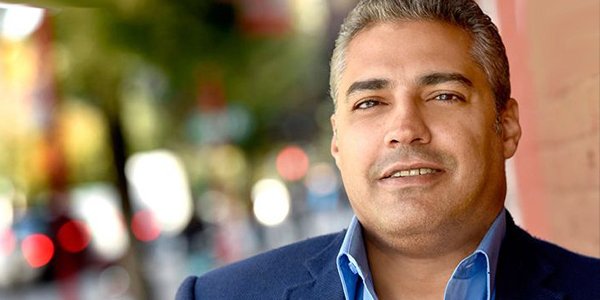Mohamed Fahmy will deliver the annual Dalton Camp lecture this Thursday, Oct. 27 at 8 p.m. at the Richard J. Currie Center.
During his time as bureau chief for the Qatari network in Egypt, Fahmy was unfairly jailed for 438 days. He was jailed because it was believed he was conspiring with the Muslim Brotherhood and operating without a press licence while broadcasting news that was harmful to Egypt on Al-Jazeera.
Throughout his time in prison, the Canadian Journalists for Free Expression lobbied for Fahmy’s release. The executive director of this organization is Tom Henheffer, who graduated from St. Thomas University in 2009 with his Bachelor of Arts in Journalism and Human Rights.
Henheffer described Canadian Journalists for Free Expression as “a non-profit advocacy group that exists to promote the respect for free expression rights in Canada and around the world.”
Some of the work the organization does includes lobbying members of parliament, running public education campaigns about free expression in Canada, providing online resources on free expression news around the world and human rights abuses, writing letters to governments around the world, working to get journalists out of jail and providing emergency support for journalists all over the world.
Henheffer said that Canadian Journalists for Free Expression worked on Fahmy’s case for two years, from the moment Fahmy was detained on Dec. 29, 2013 to his release in 2015.
“As soon as it happened we wrote the Canadian government, wrote the Egyptian government, got in contact with his family and I decided what we could do.”
Henheffer said Fahmy’s case was difficult because the previous Canadian government did not advocate heavily for him and the Egyptian government was not helpful either. This did not stop Henheffer and Canadian Journalists for Free Expression.
Henheffer said they built a long-term strategy that spanned over two years where the organization would co-ordinate with Fahmy’s family and Fahmy himself when he was released on bail. They also worked to time their presence in the media during key moments in the trial so they would get a great amount of attention in the international media.
“We held press conferences, protests, social media and then we really tried to time things well so they would be in the media at key moments so that people wouldn’t get sick of the story,” he said.
“And then we also made sure if there was an opportunity to get him released that the Egyptian government could do it while saving face, which in the end was exactly what happened.”
Fahmy was released on Sept. 23, 2015, a day on which the Egyptian government traditionally releases and pardons certain prisoners.
Henheffer said that Fahmy’s lecture this Thursday will be one students won’t want to miss. He said that Fahmy is extremely dedicated to the cause of journalism and expects him to talk about the dangers for journalists in today’s world.
Henheffer said he also thinks Fahmy’s lecture will include his insight into the current state of press freedom and democracy both in Canada and all over the world.
“I think he’s going to give an extremely illuminating talk that will be really informative and everyone on-campus needs to go see it because his story is astounding. He’s an incredibly moving speaker, and the issues he’s going to be talking about are some of the important ones in the world today.”

